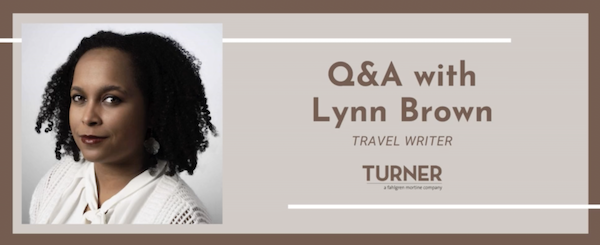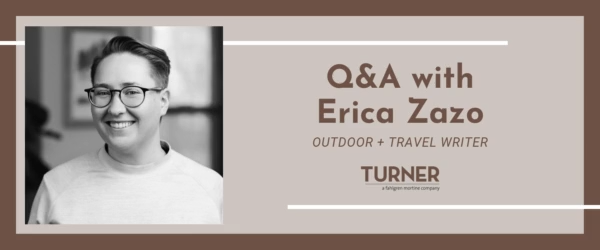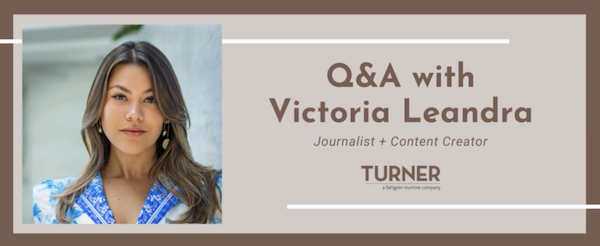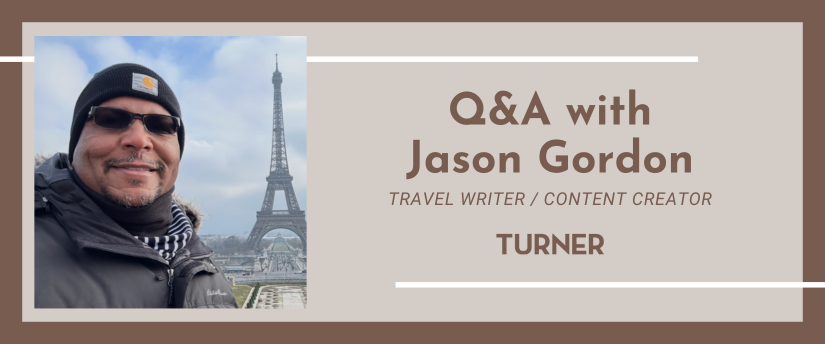TURNER Q&A: Erica Zazo
Based in Chicago, Erica Zazo is a freelance writer with a deep-seated passion for uncovering the hidden gems of the Midwest, with an emphasis on...

Lynn Brown is a writer, professor, digital storyteller and traveler whose work centers on issues of race, place, culture and history. Currently the Senior Staff Journalist for Travel and BBC Studios, her work can be found in media outlets such as USA Today, Travel + Leisure, Wanderlust and others. TURNER caught up with Lynn recently to get her thoughts on a variety of topics.
My writing tends to blend culture, history and travel. I like to write about marginalized communities and about historical events that you can still go and experience somehow. There are all of these really interesting historical moments that didn't really get fully reported on at the time. Often, journalism is very focused on breaking news — new stuff. As a result, you never get to go back to report on or highlight these moments. But travel writing is a good way to do that because it shows people that they can still go to these places and have those experiences. But there’s always the news hook problem.
Yeah, that's still there. It’s really cool because you can just show up. It's not really a museum per se. It’s outdoors, so you can kind of just walk around the buildings and they've got different little audio recordings and information. It's actually a neat little spot.
Right! I think that you miss some of the important intersections when that’s the case. With the blues piece I wrote, I was thinking a lot about that time period and how we think of that music as separate from what else was going on then. But that’s also the Reconstruction Era of the early 1900s. There’s that link there — and on the surface of it, we might not think of the blues as political music, but when you look at it, you think … well, maybe it is!
I was — COVID killed it, unfortunately. Now, I’ve got ¾ of a book that I’m shopping around. The guide is focused on marginalized communities. For instance, there’s a really big Vietnamese community in South Louisiana that people don’t know about. There’s a lot of Indigenous history in the area that isn’t well-known. That was the vision I had for the book. I did a lot of research and then COVID happened.
There are a lot of surprising things about the South. Like the coast of Alabama, for example. The beaches in Alabama are gorgeous. They’re like Caribbean beaches, with sea turtles nesting and everything. The South is so fascinating. It’s both heartbreaking and awesome at the same time, you know. I think more people should spend some time down there and learn and deal with both the awful stuff and the good stuff. I actually am originally from New York, but my family is from the South. I lived in North Carolina for a while, and I lived in New Orleans for a while. I just moved back to New York in 2018. So, it's kind of a culture shock, even though technically I grew up here. There's a great sense of community in the South. Since I moved to New York, I miss that a lot.
I love the idea of inspiring people to travel, obviously. There's a lot to learn when you travel — not just about the destination, but also about yourself. You’re a different person when you're in different places. That's a big thing. But I also want to be really conscious of people who can't travel. I want to be able to write a story that you can read and feel like you’ve had some experience of the place, even if they haven’t been there. That’s the kind of travel writing I like the most. Something that captures a sense of the history, the culture and the feel of the place.
I feel like a lot of travel writing today is leaning towards top 10 lists and roundups. It’s interesting because it’s sort of taking the place of travel guidebooks that would tell you which places you have to go to and the restaurants and all of that. But for me, travel is more than that. I’d love to see more creative nonfiction, more history, in travel writing. What is it about this place that is special? Almost literary travel writing. With the top 10 approach — that’s how you get overtourism. Everyone ends up going to those 10 places, whereas maybe there’s some funky little town that is really cool but doesn't get a lot of tourists. You'd never know about it if you're just writing a top 10 list, right? Travel writing shouldn’t just be a checklist.
One thing that’s really hard, especially when you’re freelance, is that a lot of PR people will say that they need you to have a confirmed story first before getting a trip put together. Increasingly, that’s getting difficult to do. Also, I love going on press trips, but often I’ll find that everybody on the press trip ends up pitching the same couple story angles. I’m probably notorious on those trips for saying, “OK, I’m going to go over and do this other thing or interview this other person.” It might not have anything to do with the broad outline of the trip, but that’s how you get unique stories.
Follow Lynn’s further adventures on Substack, Instagram and LinkedIn.

Based in Chicago, Erica Zazo is a freelance writer with a deep-seated passion for uncovering the hidden gems of the Midwest, with an emphasis on...

An award-winning journalist, Victoria Leandra works at the intersection of social justice, travel, food and culture. She’s been noted by some big...

Driven by a deep-seated love for exploration, Jason Gordon has become a highly respected voice in the travel world and the cruise industry. As a...